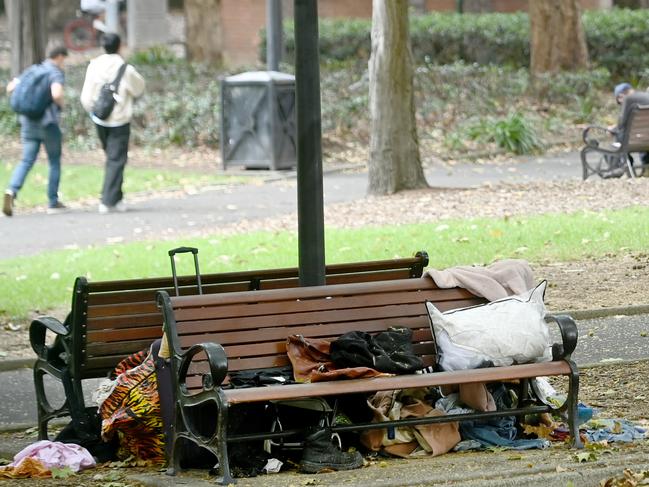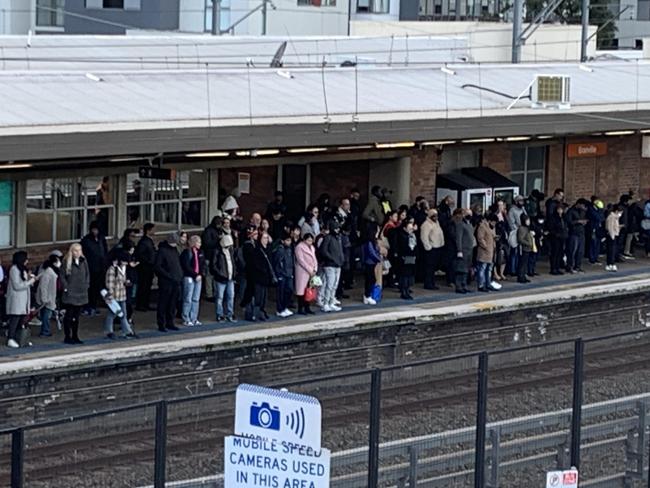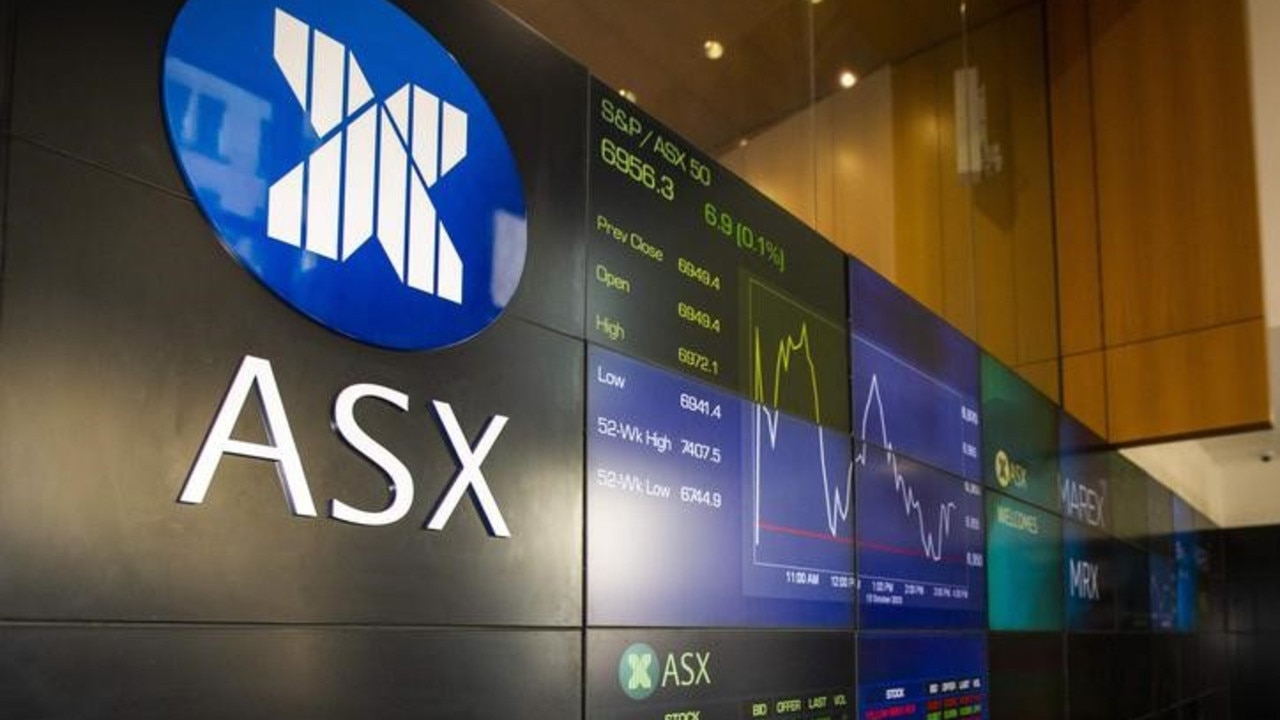‘Survival of the fittest’: Australia no longer the Lucky Country
Soaring cost of living has turned the country into “survival of the fittest”, as Aussies share their brutal stories.

Economy
Don't miss out on the headlines from Economy. Followed categories will be added to My News.
Soaring cost of living has turned Australia into a game of “survival of the fittest” where young people and those not already wealthy face a “bleak” and depressing future.
That’s the view of one Reddit user, whose viral post on Sunday has attracted hundreds of comments from Aussies sharing their day-to-day financial struggles in what was once the “Lucky Country”.
“If you thought Australia was an easy ride and you can revel in escapism to get through your life and get through unscathed, you are now unlucky and you seem to be the easy target for the government,” the post read.
The user went on to suggest “foreigners” with stronger work ethic were now higher on the “hierarchy list” than Australians.
“And so be it. I suppose the entitlement has been left too long,” they wrote.
“If you are early to mid-twenties, living in ignorant bliss is just not an option anymore. Not only do you have to compete against permanent residents that were luckier enough to have a better and more expensive tertiary education, you now have to compete with people who have a constant reminder of why they need to work harder than you, because they have the pressure of their whole family on their back.”
They continued, “Unless you’re one of the lucky ones with a silver spoon up your a** and three high-paying job offers from your uncle’s dad’s brother straight out of high school, life is looking real bleak right now. I think I might join Hillsong at this point, because I need to find Jesus and a miracle and way to launder my money.”

The post struck a nerve with many users, attracting more than 600 comments largely agreeing that the good times were well and truly over.
“It’s kind of like Australia is taking the worst aspects of capitalism and turning into a s****y society,” one wrote.
“If it’s not clear yet, you become your demographics. Having a fair society, with a relaxed work-life balance is on the way out, especially for lower-income earners. Twenty years ago a person earning a below-average wage could still have a two- or three-bedroom home … relaxed weekends and be able to enjoy a good Aussie lifestyle. I think that is all but gone now, sold out by greed and politicians. Amazing that lifestyle has actually gone backwards.”
Another said, “The law of the jungle is a way of life in overpopulated countries, and unlike fair-go Aussies the people driving our population growth are conditioned to it. Welcome to the world, it was nice while it lasted.”
One user agreed “not too long ago” such opinions were condemned as offensive by many Australians, with another claiming “its easy to be humble and virtue signal when everything in your life is going fine and dandy”.
“Yeah, I’m 40, I can’t complain as I have a mortgage and a home and a full time job … but I do empathise with today’s youth,” another wrote. “I couldn’t imagine trying to buy a home these days among other things. We only decided to have one child in the hope of being able to provide a better future for them.”

Australia is in the grip of a crippling housing crisis, with soaring prices putting home ownership well out of reach of those on earning an average wage.
It would take a typical single school leaver 46 years to save a 20 per cent deposit on a median Sydney house and 18 years for a unit, according to analysis from comparison website Finder earlier this year.
At the same time, rents have soared in by nearly 40 per cent in the past five years as vacancy rates hover at record lows, while homelessness services across the country report a rise in requests for assistance.
A recent report warned that as many as 40 per cent of low-income renters are now at serious risk of having nowhere to live.
Since Prime Minister Anthony Albanese came to power, a record 1.15 million migrants have entered the country.
Analysis earlier this month suggested the net migration intake between July 2023 and May 2024 was 445,510, well ahead of the 395,000 target for the 2023-24 financial year Labor committed to in the budget.
“The out-of-control migration intake is a key driver in Australia’s housing and inflation crisis,” said Daniel Wild, deputy executive director of the Institute of Public Affairs (IPA), which based its analysis on net arrivals and departures data from the Australian Bureau of Statistics (ABS).
“Net arrivals and departures data is a leading indicator of the net overseas migration data, and no matter which way you look at it, the federal government has broken its promise to Australians to rein in out-of-control migration. It is placing unsustainable pressure on our current social and economic infrastructure, has not solved worker shortages, and is leaving Australians worse off.”

Most experts do not agree, however.
Last week, leading economists polled by the Economic Society of Australia said easing planning restrictions was the most important measure needed to tackle the housing crisis.
Just 6 per cent of experts picked restraining immigration as the top priority.
“About two-thirds of the experts polled picked ‘ease planning restrictions’ as one of the most important fixes. Almost as many picked ‘provide more public housing’,” said Peter Martin, a visiting fellow at the Australian National University’s Crawford School of Public Policy.
“About one-third wanted to ‘tighten negative gearing and capital gains tax concessions’, which was a policy Labor took to the 2019 election. Another third wanted to ‘replace stamp duty with land tax applying to family homes’.”
Back on Reddit, the cost of groceries was also highlighted as a massive pain point.
“I’m finding food shopping unreal,” one person commented. “Wife [and two] kids, food bill over $1000 per month with school lunches thrown in.”
Another agreed, “Yup easily $1600 a month with three kids. That’s never eating red meat literally only chicken and mince.”
A third wrote, “I’m not sure how anyone’s grocery bill is under $2000. We’ve hit over $3000 a few times this year.”
Treasurer Jim Chalmers told parliament last week cost-of-living pressures were the “primary focus” of the Albanese government.
“When we came to office inflation was higher than it is now and it was rising,” Mr Chalmers said during Question Time on Wednesday.

“Wages were stagnant and that meant that real wages were going backwards really quite substantially. The tax cuts were skewed to people who were already on the highest incomes. There was a trillion dollars of Liberal debt in a budget weighed down by waste and rorts. We’ve turned two of those deficits into Labor surpluses.”
Official figures show pressure on grocery prices has eased for the past year-and-a-half.
Annual food inflation eased to 3.3 per cent in the June quarter, down from 3.8 per cent in the March quarter and the peak of 9.2 per cent in December 2022, according to the ABS.
Price rises were lower across most food categories except fruit and vegetables, as unfavourable growing conditions drove higher prices for grapes, strawberries, blueberries, tomatoes and capsicums.
Overall prices for food and non-alcoholic beverages were 3.3 per cent higher than a year ago, with meals and takeaway foods the main contributor to the change with a 4.2 per cent rise.
But surveys show the price of groceries remains a top concern for consumers, contributing to overall cost-of-living pressures.
The average Australian spends $190 per week on groceries, according to Finder.
“Data from the Consumer Price Index (CPI) shows prices rose for 90 per cent of product categories between June 2023 and 2024,” Finder said last week.
“This means you’re paying around 1.9 per cent more for bread, 6 per cent more for eggs and 5.2 per cent more for seafood, but 8.7 per cent less for lamb and goat. Inflation and transport costs are also putting pressure on suppliers and supermarkets, pushing prices up more.”

According Finder’s Consumer Sentiment Tracker, 38 per cent of Aussies say their grocery shopping is causing them financial stress, up from 21 per cent three years ago.
Finder says cost-of-living pressure experienced by Australian households is now in the “extreme” range at 80 per cent as of July with mortgage stress the biggest contributor, compared with a reading of 50 per cent in 2021.
The “pressure gauge” combines various data points including housing stress, salary projections, household debt, financial strain, savings, holiday intentions, credit card expenditure, interest rates, property values and inflation.
NAB’s consumer sentiment survey for the June quarter also found consumer stress rising again, with the tracker sitting at 58.9 points, from 58.5 in the first three months of the year.
“Cost of living remains the key worry but job security is adding most to the uplift in concern,” NAB said.
“While expectations for further increases in cost of living have become entrenched, consumers continue to adjust to these recurring challenges by taking greater control of household budgets, cutting spending in most areas.”
The majority of Australians “do not expect any respite in the short-term, with many becoming resigned to an extended period of higher prices with most expecting further increases over the next three and 12 months, despite most economists expecting inflation to slow”, the bank added.
The headline inflation rate rose to 3.8 per cent in June, up from 3.6 per cent in March and well above the Reserve Bank’s target of 2-3 per cent.
Originally published as ‘Survival of the fittest’: Australia no longer the Lucky Country





